MSc Sustainability & Environmental Studies
ApplyKey facts
- Start date: September & January
- Accreditation: Institution of Civil Engineers, Institution of Structural Engineers, Chartered Institution of Highways and Transportation & Institute of Highway Engineers, Permanent Way Institution (PWI)
- Study mode and duration: 12 months full-time; 24 months or 36 months part-time (on campus); 36 months part-time distance learning
Athena Swan Gold Award for supporting gender equality in engineering
Eligibility: All academic backgrounds accepted, including arts, business, education, engineering, geography, journalism, languages, law, sciences and social sciences.
Study with us
- receive cross-disciplinary teaching from all four Faculties in the University
- gain skills in environmental management, circular economy, EIA and sustainability
- design your own curriculum to suit your career aspirations
- opportunity to carry out an industrial project
- suitable for graduates from any background
- join the more the 600 alumni from this MSc in a wide range of job opportunities
Accreditation
This degree is accredited by the
- Institution of Civil Engineers (ICE)
- Institution of Structural Engineers (IStructE)
- Chartered Institution of Highways and Transportation (CIHT)
- Institute of Highway Engineers (IHE)
- Permanent Way Institution (PWI)
on behalf of the Engineering Council as: meeting the requirements for Further Learning for a Chartered Engineer (CEng) for candidates who have already acquired a partial CEng accredited undergraduate first degree.*
See Joint Board of Moderators website for further information.
*It should be noted that candidates completing the MSc who hold an underpinning accredited IEng degree or a non-accredited bachelor degree will need to apply for an academic assessment to determine whether they will meet the educational base for CEng registration.
The Place of Useful Learning
UK University of the Year
Daily Mail University of the Year Awards 2026
Scottish University of the Year
The Sunday Times' Good University Guide 2026
Why this course?
Our MSc Sustainability & Environmental Studies offers a cross-disciplinary approach to the study of environmental management and policy, circular economy, sustainability and Environmental Impact Assessment (EIA) in both developed and developing countries. It is suitable for applicants from all academic backgrounds and our wide range of subject options enables you to choose classes to suit your background.
You’ll learn about major environmental issues and the circular economy and gain an understanding of the methods in which environmental considerations and climate change are used in development and planning decisions. You'll be expected to probe, for example, strategies and policy options for achieving sustainable development without increasing the ecological footprint of economic activities.
A unique feature of the department is our strong link to industry and public bodies, which is an essential part of our approach to research and education. It also provides our students with valuable contacts outside the world of academia.
Running since 1992, this is one of the oldest sustainability degrees in the UK. This innovative interdisciplinary degree was created to allow access to sustainability and environmental classes across all four faculties. The University celebrated the 30-year anniversary of the MSc with a photographic exhibition showcasing how alumni from this degree are contributing to "Sustainability in Action" in a variety of jobs globally.
.jpg)

Our graduates are in demand
There’s a strong demand for graduates with skills in environmental management, EIA, circular economy and policy-making. We’ve seen our more than 600 graduates capitalise on a wide range of employment within the private, public and voluntary sectors.
Sustainability in action all around us
Members of our department work in partnership with Glasgow City Council as part of Sustainable Glasgow.
And the University is leading an ambitious Climate Neutral Glasgow City Innovation District project to create a 100% renewable, climate-neutral and climate resilient campus, integrating heat, power, transport, climate adaptation and wellbeing solutions.
What you'll study
You'll take three compulsory classes (adding to 30 credits) and choose a further 90 credits from a wide range of optional classes. This wide choice ensures that each student can tailor their curriculum to match their background and career aspirations, and also ensure the curriculum is cross-disciplinary. Each class is normally taught for two hours per week over eight to 11 weeks. Following successful completion of the taught classes, you'll undertake a dissertation.
Work placement
As part of the class Independent Study in Collaboration with Industry, you can apply to work with industry projects.
Since 2012 students have carried out more than 300 industry projects as part this class for a very wide range of organisations
Attendance
One-year full-time study “September Start” involves attendance at classes over two terms, plus a dissertation during the summer.
The MSc is also offered as a "January start" in addition to the usual “September Start”. This is where students do one semester, then the dissertation during the summer and then complete the other semester.
Part-time (open to Home students only) involves class attendance in Years 1 & 2 and a dissertation in Years 2 or 3.
You can also study this course part-time through online distance learning, over 36 months, offering a flexible learning mode of study.
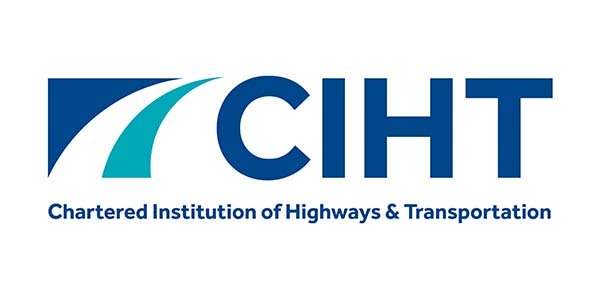
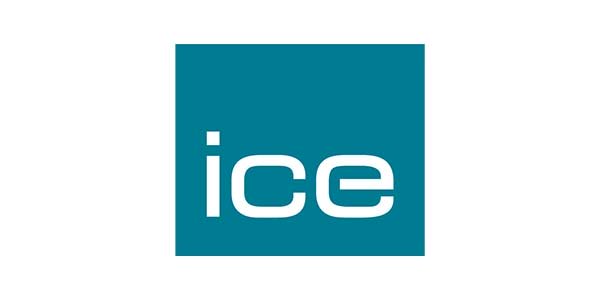
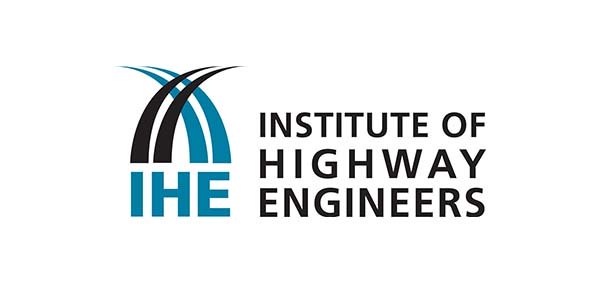
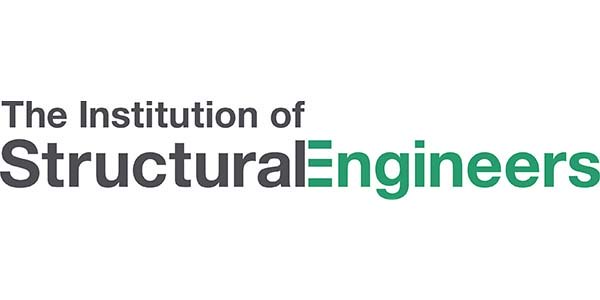
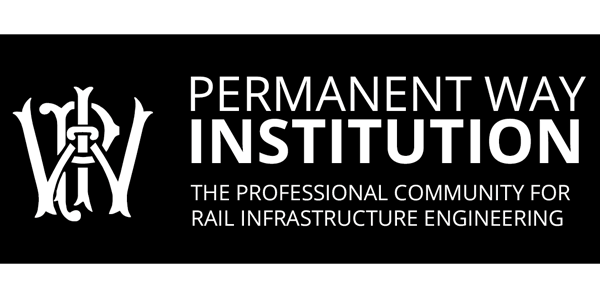
Facilities
Our £6 million state-of-the-art laboratory facilities are well-equipped with high-technological instrumentation and available space to investigate:
- environmental & molecular microbiology
- environmental chemistry
- analytical chemistry
- geomechanics & soil quality
- structural design & material science
Discover more about our laboratory facilities.
Living Laboratory for Sustainability
You'll benefit from this innovative initiative which encourages students and researchers to carry out projects that aim to work towards the enhancement of the University’s sustainability. Get involved with Sustainable Strathclyde.
Teaching staff
Dr Yannick Kremer, Leader and Course Director, (MSc) Sustainability and Environmental Studies
You will also be taught by other members of staff from across the University's four faculties. See Course Content for more details. Most staff from the Department of Civil and Environmental Engineering who teach this MSc are part of the Centre for Water, Environment, Sustainability & Public Health.
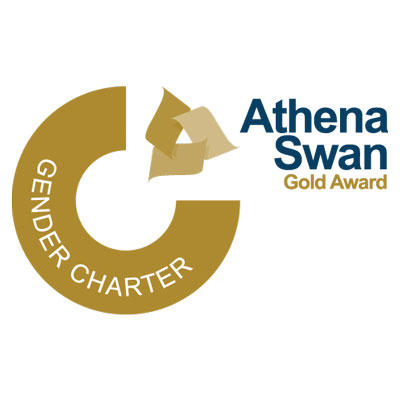
We've been awarded the Athena Swan Gold Award for our commitment to improve equality, and being an inclusive and supportive place to work and study.
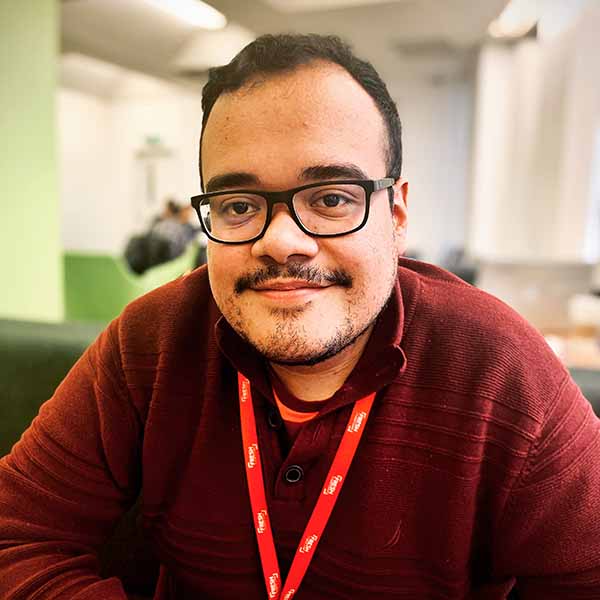
Alejandro Mar Morales
Mexico
I enjoyed the ability to create your own curriculum with optional classes, as it gives you a chance to specialise in one area of the course, as well and their industry project, as it's quite informative and useful for developing working skills.

Mariana Gabriela Páez Jiménez
Mexico
As a Woman in STEM, I also hope to inspire young girls and women to pursue careers in this field. My time at Strathclyde has equipped me with both the technical knowledge and the soft skills necessary to achieve these goals.

Shannon Brown
USA
It might be a little scary to go abroad for a whole year, or more, to attend university, but it is completely worth it. Glasgow becomes a second home and the friends you make at Strathclyde are going to be lifelong.
Course content
* Denotes classes that are available for distance learning. Please note: not all electives are available for distance learning study mode.
Circular Economy & Transformations Towards Sustainability* (10 credits)
This class initially introduces the circular economy as a framework for the development and management of a sustainable 'waste-as-resource' economic system in which production is designed to be restorative and resilient. The class then proceeds to cover a range of contemporary challenges in the practical application of circular economic principles within different sectors, incorporating presentations from leading practitioners in the field.
The implications of the concept of circular economy for research, policy, business practices and societal transformations towards sustainability are explored in detail through a mix of theory, case studies, individual and group project work. This includes consideration of the role of innovation and knowledge production; social trends and consumer behaviour; conservation and sustainable use of energy and material resources; climate change and environmental sustainability; and the design of business models that maximise product life and value retention.
The class discusses the role of individuals and communities in the making and operation of the circular economy. Students are challenged to identify and critically evaluate opportunities to use waste as an economic good and as the basis for commercially, socially and environmentally profitable business initiatives through the application of creative design; as well as the range of business opportunities arising from repair, reconditioning and remanufacturing activities. The class also introduces the key principles of Life Cycle Assessment (LCA), carbon measurement and management.
Research methods for quantitative & qualitative approaches* (10 credits)
In this class, dedicated to the MSc and MRes students in the Department of Civil & Environmental Engineering, students will acquire familiarity with, and practice of, research techniques, and examine different ways of, and gain experience in, presenting research results. The course discusses the key principles, and practical exercises, on both quantitative and qualitative research methods, such as observation methods, survey methods, interviewing techniques and statistical methods. The course also includes discussion of ethical issues. Finally, the course covers writing skills and use of literature, which is relevant to all classes
Environmental Impact Assessment* (10 credits)
Environmental impact assessment (EIA) relates to the process of identifying, evaluating, and mitigating the biophysical, social, economic, cultural and other relevant effects of development proposals prior to major decisions being taken and commitments made. This class, run by the Department of Civil & Environmental Engineering but open to all MSc and MEng students across the University, introduces the methods used to predict environmental impacts, and evaluates how these may be used to integrate environmental factors into decisions.
The class draws principally on the UK planning context of environmental impact assessment of individual projects (project EIA), but also takes account of EIA experience in other countries and international organisations. Participants evaluate the quality of Environmental Statements (or EIA Reports) and of the EIA process using the Institute of Environmental Management and Assessment (IEMA) methodology.
The class discusses how EIA can be used a pro-active design tool for projects and how it can contribute to the enhancement of environmental, social and health issues. Students are also introduced to key principles of Strategic Environmental Assessment (SEA) and biodiversity net gain (BNG). Class has the contribution of key practitioners in the field and includes different case studies, such as proposed onshore and offshore windfarms.
Choose 90 credits from this list. This wide range of optional classes from across all four faculties ensures that each student can tailor their curriculum to match their background and career aspirations, and also ensure the curriculum is cross-disciplinary.
Climate Change Economics (10 credits)
Climate change is one the pre-eminent global political and economic issue of the 21st century. This class, run by the Department of Economics, is intended to provide students with an overview of the basic model underlying the economics of climate change and the economic approach to climate change policy. It then goes on to describe the complications that need to be considered beyond this basic model in order to think about climate change policy in the real world.
Contaminated Land* (10 credits)
Within the background of land redevelopment (residential, industrial/commercial and gardens/parks), this class, run by the Department of Civil and Environmental Engineering, aims to provide insights into the remediation of contaminated land, including the regulatory framework and risk assessment, sampling and analysis, and various remedial techniques for contaminated land.
On completion of this class you're expected to be able to:
- identify possible human health and environmental risks associated with contaminated land management
- demonstrate a working knowledge of the regulatory framework in place in the UK for contaminated land management and remediation, including relevant legislation, policies and regulations
- evaluate critically the range of technologies that may be suitable for various types of contamination present.
make informed decisions about technologies for contaminated land remediation based upon technical solutions, risk assessment & management, planning and financial constraints
Economics of Inequality and Inclusive Growth* (10 credits)
Understanding what drives inequalities in economic outcomes is a key aspect of modern economic thinking. Many of the drivers of such inequalities are cross-cutting, covering a range of economic issues from changes in economic policy through to the overall macroeconomic environment and the changing nature of our modern labour market. This class, run by the Department of Economics, is designed to:
- raise the awareness of the different roles for economic analysis in the formulation of effective policies aimed at tackling inequality and reducing poverty
- develop policy-relevant understanding of current issues inclusive growth enabling students to effectively contribute as an applied economist
Energy Economics* (10 credits)
Energy resources (such as crude oil, natural gas, coal, biomass, wind and sunlight) can be harvested and converted into useful forms to produce energy commodities (such as petroleum and diesel fuel, natural gas, and electricity) that can be used to provide energy services for human activities.
The class, run by the Department of Economics, begins by studying the forces that generate both demand for and supply of energy resources and energy commodities. It considers what factors determine the way those commodities are transported to users, and how residuals are disposed of. It investigates the roles of alternative market and regulatory structures on these activities, the impacts of such activities and their environmental consequences.
The class identifies criteria required for the efficient provision and use of energy commodities and resources and reasons why efficiency is rarely achieved. The class adopts a practical, applied orientation throughout. Applications include the evaluation of renewable energy projects and the economic analysis of nuclear power.
Energy Resources & Policy (10 credits)
This class examines sustainable options for energy production, supply and consumption in relation to the net zero transition now underway in many countries. The aim of this class, run by the Department of Mechanical & Aerospace Engineering, is to give students an understanding of current trends in energy conversion and the energy market, and to enable a critical evaluation of emerging ideas, technologies and policies especially in relation to new and renewable energy supply systems.
Environmental Economics* (10 credits)
A growing, and increasingly important, part of the work of many applied economists includes the economic analysis of environmental issues. Additionally, many professionals working in the fields of energy, the natural environment, government, or business more generally will find that their careers require some working knowledge of economic approaches to environmental problems.
The main objective of this class, run by the Department of Economics, is to provide a thorough grounding in the economics of the environment, with a particular focus on environmental protection in an international policy context. That context raises all of the issues confronted in the analysis of national and subnational environmental policy making, but also a host of others that arise from the absence of a supranational sovereign authority.
A key element of the economic approach to environmental policy is ‘value for money’ ‐ designing policy interventions that give the greatest environmental improvement for any particular budget outlay. But economic analysis also deals with questions about sustainability (and so impacts on future generations) and equity between different individuals, groups, and countries.
This class pays particular attention to international environmental problems – those that spill over national boundaries, and cannot be well‐managed by actions of individual countries alone, such as climate change and loss of biological diversity.
Environmental Geochemistry* (10 credits)
The class, run by the Department of Civil and Environmental Engineering, familiarizes students with an understanding of chemical composition of water resulting from geochemical reactions in nature. It allows students to develop an understanding of geochemical thermodynamics (including water rock thermodynamics, carbonate geochemistry, aqueous speciation and geochemical modelling) and weathering (including congruent, incongruent and redox geochemical reactions and earth science systems).
Environmental Pollution Management* (10 credits)
In this class, run by the Department of Civil and Environmental Engineering, you'll develop in-depth knowledge and skills regarding the science, engineering and management of environmental pollution control approaches to protect public health. You'll benefit from research-led teaching at the interface between public health and environmental engineering, with a particular focus on risk-centred methods. Lecture sessions are complemented by industrial and government case studies in contemporary air quality management practice.
Financial Engineering* (10 credits)
This class, run by the Department of Civil and Environmental Engineering, explores financial options for ensuring the solvency and financial sustainability of business ventures. It covers topics including financial reporting and financial accounting in relation to the wider issues of corporate behaviour and corporate governance. Also covered are:
- financial instruments
- asset valuation
- capital project financing and methods of raising capital
- capital structure and gearing
- risk management
- elements of portfolio management
- corporate business and financial strategies, including mergers, acquisitions and restructuring as aspects of financial engineering and corporate business management
The class will also look into the implications of the occurrence of financial crises at corporate, national and global levels for the financial engineering practice.
Fundamentals of Environmental Forensics* (10 credits)
Fundamentals of Environmental Forensics* (10 credits)
This class, run by the Department of Civil and Environmental Engineering, sets environmental forensic science in an overall legal and professional context and introduces the structure and integrated functions of the legal processes for environmental litigation. The class illustrates different legal systems through case studies, competency, and ethics for environmental forensics. The class also introduces students to a range of environmental forensic applications.
Games of Strategy*(10 credits)
In many environments, decisions are not made in a vacuum: what any individual does affects the wellbeing of others, and vice-versa. When this is the case decision-making requires some very careful thought indeed. Game Theory recognises this inter-dependence of decisions, and through its study students will develop skills to analyse such strategic environments using appropriate game theoretic tools, enabling them to enhance their decision-making ability in environments where they face strategic adversaries. Whilst Game Theory is used extensively in Economics, it is also of great importance in the business environment whenever interactions take place at a strategic level.
This class, run by the Department of Economics, aims to:
- For students to recognise when decisions are being made in strategic environments and to be able to model such environments using appropriate game theoretic notions.
- For students to better understand the interdependence of decisions and to learn to understand the consequences of this.
- To understand the difference between decisions made simultaneously and those made sequentially, and recognise the power of commitment to a course of action in sequential decision-making environments.
- To recognise the tacit opportunities for cooperation between competing adversaries to be sustained in prolonged interactions, even when there are individual incentives to cheat.
Geographical Information Systems (GIS)* (10 credits)
This class, run by the Department of Civil and Environmental Engineering, introduces Geographical Information Systems (GIS) and spatial data analysis. The course covers the key theory with a strong focus is on practical applications. Students will develop skills to apply GIS independently to real world datasets and problems. The student will need to independently develop spatial research questions, find, or collect relevant data and perform a state-of-the-art spatial analysis. GIS is a digital tool for analysing spatial phenomena. It focusses on spatial data, so data where the location of the data is just as important as the data itself. GIS allows us to organize, visualize and analyse this data in a spatial context, so that we can interpret and understand the underlying processes. GIS can be used in a wide range of fields for example in engineering (site selection, flood risk, transport planning, impact of construction), environmental science (e.g. soil erosion, health and disease, pollutant transport, landscape visual impact assessment, wildlife preservation), business (e.g. asset management, customer relations) to policy making (e.g. urbanization, deforestation, spatial distribution of crime).
Global Water Policy* (10 credits)
This class, run by the Department of Civil and Environmental Engineering, aims to provide students with the ability to:
- recognise the issues relating to overall global water policy and its interactions with other global issues
- discuss the impact of climate change and economic development on water resources and availability
- explore the different implementation issues based on regional case studies
- explore the role of stakeholders on the acceptance and achievement of policy objectives
The class also covers water policy from an international perspective focusing on transboundary issues and a review of the Sustainable Development Goals (SDG) that tie into water law and water policy.
Human Information Behaviour (10 credits)
Human Information Behaviour seeks to understand what are the information needs of an individual or an organization, making the user, rather than the system, the focus of interest. This can help determine what information is needed in a series of fields like consumer behaviour, marketing and environmental communication.
On this class, run by the Department of Computer & Information Sciences, students will learn to:
- develop an understanding of models and theories of human information behaviour
- develop an understanding of the factors influencing human information behaviour
- develop an understanding of information need in context
- develop an understanding of appropriate research approaches and methodologies
- undertake a research project to understand the information behaviour of a selected group of people
Hydrogeology* (10 credits)
Hydrogeology is the study of groundwater. Groundwater represents by far the largest volume of freshwater on Earth. The objective of this class, run by the Department of Civil and Environmental Engineering, is to serve a diversity of interests, including those of geologists, practicing hydrogeologists and engineers, geochemists and geophysicists, and environmental scientists interested in subsurface fluid dynamics and contaminant transport. The class presents information on the hydrologic cycle, the porosity, and permeability of porous material, and on fluid, energy, and mass transport in porous media. The class also covers a range of issues related to dissolved contaminants in the soil and groundwater environment, the general chemistry of groundwaters, and the difficulties associated with prediction of contaminant transport in the subsurface environment.
Independent Study in Collaboration with Industry* (10 credits)
This class, run by the Department of Civil & Environmental Engineering but open to all MSc and MEng students across the University, allows students to carry out projects and placements with industry to develop and refine professional skills while gaining credits in the process. Since 2012 students have carried out more than 300 industry projects as part of this class for a very wide range of organisations. Approval of students being able to take this module is done on a case-by-case basis by staff and industry contacts. Students are selected by competitive application and CV. Although this is a S1+S2 class, realistically most of the work is done in S2 (approximately 25% in S1 and 75% in S2). It is highly recommended that all students that are potentially interested in taking this module attend the first information session in September in week 1 of S1 (find room number by searching class CL973 in the timetables).
International Environmental Law (10 credits)
In the past half-century, the scope of international law has increased dramatically. From a tool dedicated to the regulation of formal diplomacy, international law has expanded to deal with the most varied kinds of international activity, from trade to environmental protection, and from human rights to scientific and technological cooperation. However, this expansion has taken place in a largely uncoordinated fashion, within specific regional or functional groups of States. Focus has been on solving specific problems rather than attaining general, law like regulation.
International environmental law is a case in point, both in terms of its relationship with other fields of international law (e.g., international trade law) and in terms of the relationship between its constituent parts (i.e. the various geographically and functionally limited regimes that make up its corpus). Each in its own way, these two sets of relationships suffer from a deficit in coordination at the law-making and implementation levels. This class, run by the Law School, explores the causes, manifestations, and implications of this deficit, and the ways in which policy coherence, mutual supportiveness, and synergies in implementation can be promoted.
Overall, this class aims to:
- provide students with an understanding of the main causes and implications of fragmentation in international law
- equip students with an insight into how fragmentation affects, on the one hand, the relationship between international environmental law and other areas of international law, and, on the other hand, the relationship between different environmental regimes
- acquaint students with the legal techniques that can be used to promote policy coherence, mutual supportiveness, and synergies in implementation
Natural Resources, Sustainability & Governance (10 credits)
This class, run by the Department of Economics, provides students with a comprehensive overview of natural resources, sustainable consumption and the United Nations sustainable development goals (SDGs) through consideration of such topics as:
- where natural resources are located
- how they are used and what are the key challenges facing consumption
- what policies are in place to protect natural resources globally
- how environmental change and degradation may impact natural resources
- how conflicts can occur over natural resources and the steps we can take to remediate this
Organic machines, engineered environments, and hybrid natures (20 credits)
This interdisciplinary class in environmental humanities, run by the Department of Humanities, explores the co-production of society and the environment in multiple contexts. Students investigate how human beings come to know and interact with natural environments, with a focus on how diverse actors select language and frames of reference in analyzing linkages between human and non-human things.
The class, which involves field trips and site visits in the Glasgow area, covers methods, theories, and concepts across a number of disciplines and utilises a variety of textual and visual materials in considering the ways that people imagine, produce knowledge about and utilize nature. Students will critically engage with concepts such as envirotechnical regimes, organic machines, deep ecology, and environmental sustainability. Further, students will critically analyse practices of environmental conservation, preservation, regulation, historical and contemporary environmental justice movements, ecosystems services, and green industry. Throughout the class, students will consider how ideas of the relationship between society and nature have changed over time and what environments mean to them.
Principles of Environmental Microbiology* (10 credits)
This class, run by the Department of Civil and Environmental Engineering, aims to introduce microbiology in a manner that is of practical importance in environmental engineering and public health. Emphasis is placed on the microbial ecology and interactions in water, soil, and biological treatment process. Microbial physiology and biochemistry will be discussed in detail as it pertains to environmental systems. Both biodegradation and public health aspects of microbiology are included. The class combines theoretical and fundamental concepts in biology to provide a basic background in microbiology and biotechnology.
Public Health Studies* (10 credits)
This class, run by the Department of Civil & Environmental Engineering, develops students’ understanding of public and environmental health, and the multidisciplinary approach in preventative and proactive action to safeguarding public health.
A diverse range of subjects are covered ranging from the risk assessment approach taken with respect to protecting the public from private water supplies, to the role of environmental health professionals in the prevention of the spread of infectious disease.
The class also provides students with fundamental knowledge regarding Health Improvement/Promotion and Health Protection, including the different methods used and the variety of agencies involved.
Regional Development Policy (10 credits)
A major area of work for economists in government is to understand, develop and evaluate the effectiveness of policies aimed at addressing regional development issues. These might include identifying and addressing slow growth in “lagging” regions, the connectedness between regions and city/regions boundaries, and the consequences of specific programmes and policies aimed at addressing diverging, often persistent, gaps in regional economic outcomes.
This class, run by the Department of Economics, is designed to give students awareness of technical and practical issues in regional policy development in Europe, and to develop the skills necessary to work in the development, implementation and evaluation of regional policies.
Remanufacturing (10 credits)
The aim of this class, run by the Department of Design, Manufacturing & Engineering Management, is to develop a detailed understanding of the concept of remanufacturing and its industrial application as well as new developments in the area. It explores the potential impact of remanufacture on a circular economy as well as the enablers and barriers. Learning is via lectures, group work and industry exposure via guest lectures by global experts and presentations by industry.
Renewable Marine Energy Systems (10 credits)
This class, run by the Department of Naval Architecture, Ocean & Marine Engineering (NAOME), aims to provide students with:
- principles and methodologies to analyse and evaluate the marine renewable energy sources potential.
- principles and methodologies to analyse and compare the main offshore wind, wave, and tidal systems available.
Social Entrepreneurship (10 credits)
There is a growth in the number of entrepreneurs starting businesses with social and environmental purposes. This class, run by Hunter Centre for Entrepreneurship, examines ideas and practices for addressing social needs. These include social enterprises, collaborative innovation networks, hubs, digital platforms, and support intermediaries. The class is centred around how students can start their own social entrepreneurship projects. The class consists of a selection of presentations and discussions around social innovation and social entrepreneurship.
Sustainable Product Design and Manufacturing (10 credits)
One of the major challenges of modern industry is to address the need for sustainable product development and manufacturing. International legislation and increasing costs of fiscal instruments such as the landfill tax now aim to force producers to reduce the environmental impacts of their products and processes. Accelerating globalisation and industrialisation continues to exacerbate complexity of sustainability. Whilst manufacturers are constantly required to lower their costs and maintain their competitiveness, legislations require them to look at lifecycle costs. This class, run by the Department of Design, Manufacturing & Engineering Management, addresses these global concerns by studying lifecycle considerations for a sustainable and profitable product development and manufacture. The latest environmental legislation will also be studied along with product development concepts and strategies that will enable industry to meet these increasingly severe competitive, environmental and legislative pressures.
Water & Wastewater Treatment Design* (10 credits)
This class, run by the Department of Civil and Environmental Engineering, aims to develop a detailed understanding of treatment processes, as well as the ability to undertake design calculations sufficient to produce a concept and detailed design of a water and wastewater treatment plant. On completion of the course the student is expected to be able to:
- recognise needs of the client and conceptualise appropriate treatment system
- understand water treatment processes, including underlying chemical, physical and biological processes
- understand legislation relevant to water and wastewater treatment and processes required to achieve objectives
- ability to manage imperfect information and uncertainty in design and calculations
Waste Management & Landfill Design* (10 credits)
This class, run by the Department of Civil and Environmental Engineering, covers organisational and regulatory aspects of waste management practice in the UK:
- legislation
- composition of domestic and industrial wastes
- storage
- collection
- reception
- disposal of solid wastes, clinical wastes, sewage sludge disposal, recycling and recovery
The class discusses common methods used in the management and treatment of solid municipal waste:
- recycling
- thermal treatment of solid waste (incineration, gasification, pyrolysis)
- biological treatment of solid waste (anaerobic digestion and composting)
- landfill as a disposal option
Water & Environmental Management* (10 credits)
This class, run by the Department of Civil and Environmental Engineering, aims to develop an understanding of the physical, chemical and biological parameters within surface water and how these relate to water quality, water quality objectives and pollution control strategy. The class also provides knowledge on the design and control of water and wastewater treatment processes. On completion of this class students are expected to be able to:
- understand the properties of surface water and how alterations to these, e.g. due to pollution events, can have an impact on water quality, biodiversity and human health
- discuss the impact of legislation on surface water quality
- discuss collection and treatment of community wastewater
- discuss treatment and provision of drinking water
Entry requirements
| Academic requirements | Normally a first-class or second-class honours degree (or international equivalent) in any degree discipline. All backgrounds considered, including social sciences, arts, engineering, law, chemistry, maths, physics, geology, biology and business. Lower degree classifications may be considered if there is strength elsewhere (for example, relevant work experience, excellent final project/dissertation, very strong academic letter of reference, very strong application statement linking with career goals.) |
|---|---|
| English language requirements | If English is not your first language, please visit our English language requirements page for full details of the requirements in place before making your application. |
Pre-Masters preparation course
The Pre-Masters Programme is a preparation course held at the University of Strathclyde International Study Centre, for international students (non-UK/Ireland) who do not meet the academic entry requirements for a Masters degree at University of Strathclyde.
Upon successful completion, you'll be able to progress to this degree course at the University of Strathclyde.
Chat to a student ambassador
Want to know more about what it’s like to be a student at the University of Strathclyde? A selection of our current students are here to help!
Our Unibuddy ambassadors can answer all the questions you might have about courses and studying at Strathclyde, along with offering insight into their experiences of life in Glasgow and Scotland.
Fees & funding
All fees quoted are for full-time courses and per academic year unless stated otherwise.
Please note:
- for courses that have a January 2026 start date, 2025/26 academic year fees will apply
- for courses that have a September 2026 start date, 2026/27 academic year fees will apply
Fees may be subject to updates to maintain accuracy. Tuition fees will be notified in your offer letter.
All fees are in £ sterling, unless otherwise stated, and may be subject to revision.
Annual revision of fees
Students on programmes of study of more than one year (or studying standalone modules) should be aware that the majority of fees will increase annually.
The University will take a range of factors into account, including, but not limited to, UK inflation, changes in delivery costs and changes in Scottish and/or UK Government funding. Changes in fees will be published on the University website in October each year for the following year of study and any annual increase will be capped at a maximum of 10% per year. This cap will apply to fees from 2026/27 onwards, which will not increase by more than 10% from the previous year for continuing students.
| Scotland | £11,900 |
|---|---|
| England, Wales & Northern Ireland | £11,900 |
| Republic of Ireland |
If you are an Irish citizen and have been ordinary resident in the Republic of Ireland for the three years prior to the relevant date, and will be coming to Scotland for Educational purposes only, you will meet the criteria of England, Wales & Northern Ireland fee status. For more information and advice on tuition fee status, you can visit the UKCISA - International student advice and guidance - Scotland: fee status webpage. Find out more about the University of Strathclyde's fee assessments process. |
| International | £30,250 |
| Available scholarships | Take a look at our scholarships search for funding opportunities. |
| Visa & immigration | International students may have associated visa and immigration costs. Please see student visa guidance for more information. |
Please note: All fees shown are annual and may be subject to an increase each year. Find out more about fees.
Fees & funding
All fees quoted are for full-time courses and per academic year unless stated otherwise.
Please note:
- for courses that have a January 2026 start date, 2025/26 academic year fees will apply
- for courses that have a September 2026 start date, 2026/27 academic year fees will apply
Fees may be subject to updates to maintain accuracy. Tuition fees will be notified in your offer letter.
All fees are in £ sterling, unless otherwise stated, and may be subject to revision.
Annual revision of fees
Students on programmes of study of more than one year (or studying standalone modules) should be aware that the majority of fees will increase annually.
The University will take a range of factors into account, including, but not limited to, UK inflation, changes in delivery costs and changes in Scottish and/or UK Government funding. Changes in fees will be published on the University website in October each year for the following year of study and any annual increase will be capped at a maximum of 10% per year. This cap will apply to fees from 2026/27 onwards, which will not increase by more than 10% from the previous year for continuing students.
| Scotland | £12,550 |
|---|---|
| England, Wales & Northern Ireland | £12,550 |
| Republic of Ireland |
If you are an Irish citizen and have been ordinary resident in the Republic of Ireland for the three years prior to the relevant date, and will be coming to Scotland for Educational purposes only, you will meet the criteria of England, Wales & Northern Ireland fee status. For more information and advice on tuition fee status, you can visit the UKCISA - International student advice and guidance - Scotland: fee status webpage. Find out more about the University of Strathclyde's fee assessments process. |
| International | £31,900 |
| Available scholarships | Take a look at our scholarships search for funding opportunities. |
| Visa & immigration | International students may have associated visa and immigration costs. Please see student visa guidance for more information. |
Please note: All fees shown are annual and may be subject to an increase each year. Find out more about fees.
Scholarships available for September 2026
Faculty of Engineering International Scholarship for Masters Study
We are delighted to offer our Faculty of Engineering International Scholarship for Masters Study for applicants to postgraduate taught degrees starting in September 2026. The scholarship award of £6,000 will be deducted from tuition fees.
Dean's International Excellence Awards
We also have a limited number of Dean’s International Excellence Awards for postgraduate taught applicants joining the Faculty of Engineering in September 2026. These scholarships are worth between £9,000 and £12,000 and will be offered to exceptional applicants at postgraduate taught level only.
How can I fund my course?
Scottish postgraduate students
Scottish postgraduate students may be able to apply for support from the Student Awards Agency Scotland (SAAS). The support is in the form of a tuition fee loan and for eligible students, a living cost loan. Find out more about the support and how to apply.
Don’t forget to check our scholarship search for more help with fees and funding.
Students coming from England
Students ordinarily resident in England may be to apply for postgraduate support from Student Finance England. The support is a loan of up to £10,280 which can be used for both tuition fees and living costs. Find out more about the support and how to apply.
Don’t forget to check our scholarship search for more help with fees and funding.
Students coming from Wales
Students ordinarily resident in Wales may be to apply for postgraduate support from Student Finance Wales. The support is a loan of up to £10,280 which can be used for both tuition fees and living costs. Find out more about the support and how to apply.
Don’t forget to check our scholarship search for more help with fees and funding.
Students coming from Northern Ireland
Postgraduate students who are ordinarily resident in Northern Ireland may be able to apply for support from Student Finance Northern Ireland. The support is a tuition fee loan of up to £5,500. Find out more about the support and how to apply.
Don’t forget to check our scholarship search for more help with fees and funding.
International students
We've a large range of scholarships available to help you fund your studies. Check our scholarship search for more help with fees and funding.
Alumni Scholarship
Strathclyde graduates can get a 15% tuition fee discount on postgraduate taught courses running in September and January. All alumni will be eligible for the discount, including those who have studied at Strathclyde on an exchange or study abroad programme.
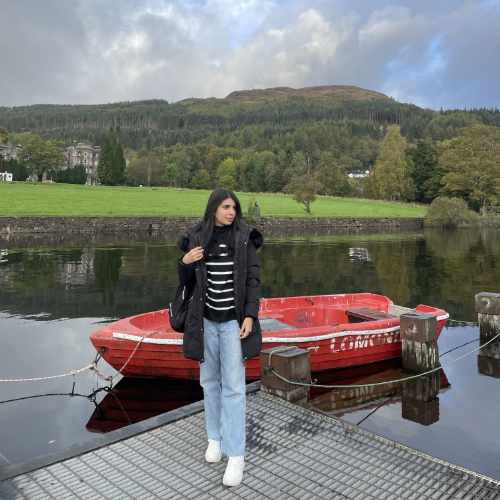
I would definitely recommend Strathclyde to anyone looking to study in the UK. The world today is a fast-paced and competitive environment and so the courses offered by Strathclyde equip students not only with the theoretical knowledge needed, but they also encourage students to think outside the box and apply the course concepts and learnings in assignments and projects in real-time.
International students
We've a thriving international community with students coming here to study from over 140 countries across the world. Find out all you need to know about studying in Glasgow at Strathclyde and hear from students about their experiences.

Careers
There are now more than 600 alumni from this pioneering Sustainability MSc that span the globe, contributing to environmental agencies, businesses, consultancies, NGOs and government departments.
As a graduate, you may find yourself in a range of positions in:
- Private consultancies
- Government agencies
- Local authorities
- Environmental regulators
- Businesses and agencies
Some of our graduates have also created their own companies and some started a PhD after completing the MSc.
Job titles include:
- Carbon Reporting Consultant
- Circular Economy Advisor
- Climate Change Manager
- Community Renewal Energy Manager
- Contaminated Land Officer
- EIA project manager
- Energy & Environmental Manager
- Environmental Consultant
- Environmental Officer
- Estates Manager
- Forest Planner
- Low Carbon Project Officer
- Principal Senior Ecologist
- Sustainability Analyst
Employers include:
- Arup
- Atkins
- East Dunbartonshire Council
- Forestry and Land Scotland
- Jacobs Engineering
- NatureScot
- Scottish Environment Protection Agency (SEPA)
- Scottish Government
- SSE Renewables
- Transport Scotland
- Zero Waste Scotland
After graduation, many of our graduates get an Associate membership of IEMA (Institute of Environmental Management & Assessment) by doing the online exam. Becoming an Associate member of IEMA allows you to use the AIEMA suffix after your name — a way to prove to employers, clients and colleagues that you’re on the great career path that the MSc has given you. Most of our students also become members of the IAIA (International Association for Impact Assessment).
34 career examples that this course has enabled over the last 30 years
This wide range of careers shows a growing need for an appropriately trained and environmentally aware workforce to respond to the challenge of sustainable development, the climate crisis and achieving biodiversity net gain. Meeting this need requires a cross-disciplinary education such as the one provided by this degree.
Glasgow is Scotland's biggest & most cosmopolitan city
Our campus is based right in the very heart of Glasgow. We're in the city centre, next to the Merchant City, both of which are great locations for sightseeing, shopping and socialising alongside your studies.
Apply
During the application process, you're required to upload the following supporting documents. If these are not provided, we'll not be able to process your application:
- certified individual semester mark sheets/academic transcript showing subjects taken and grades achieved for all qualifications
- if still studying, provide individual semester mark sheets to date
- certified degree certificate for all qualifications
- if still studying, provide this after completing the qualification
- provide evidence of suitable English language proficiency if English is not your first language, or you're not from a “UKVI recognised "Majority English Speaking" country”; check the University’s language requirements
- if you have been out of full-time education for over two years, provide a CV, detailing employment history, organisations worked for and a brief description of roles and responsibilities
- a copy of your passport containing your photo and passport number
- a copy of your sponsor letter/scholarship award (if appropriate)
- names, job titles and email addresses for two nominated referees
Start date: Sep 2026
Sustainability and Environmental Studies (online)
Start date: Sep 2026
Sustainability and Environmental Studies
Start date: Sep 2026
Sustainability and Environmental Studies
Contact us
Have you considered?
We've got a range of other postgraduate taught and Masters of Research (MRes) courses which may also be of interest.

